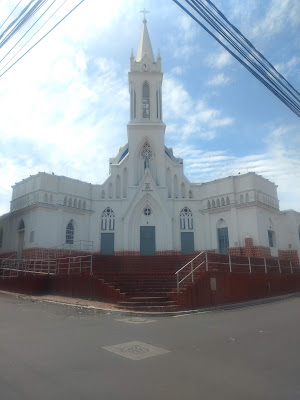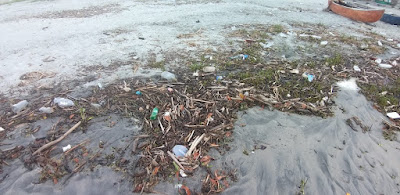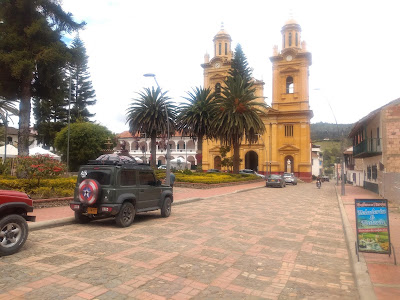@wwaycorrigan
[Listen to an audio version of this blog entry here.]
To borrow from John Lennon — and many others besides — another year is almost over and a new one is about to begin.
 |
| Peter Hitchens: always a hit (he's on the left, in case you're wondering!) |
Hitchens hit
This is always an apt time for reflection, for taking stock of one's affairs, and for looking forward. I won't be alone in being happy to see the end of 2021. While both personally and in the world at large, things could get worse, there's also plenty of scope for them to get better.The coronavirus pandemic yet again dominated the news agenda. And as much as I've tried to avoid dwelling on it, this has been rather difficult to do when containment measures directly affect one's life, whether one agrees with them or not.
Thus, of the 57 blog posts I have (so far) published here in 2021, 19 of them were related to the pandemic — to be honest, I thought that number would have been higher. The most-read one was The vaccine vexers — you can check out that "gem" at https://wwcorrigan.blogspot.com/2021/09/the-vaccine-vexers.html, if you haven't already done so.
On the other end of the scale, the least-read post was 'Colombia's done OK, but prepare for a half-shut, half-open world for 2021' — Dr Bhattacharya. That was a teaser piece for my podcast/YouTube interview with Dr Jay Bhattacharya, co-author of the controversial Great Barrington Declaration. The YouTube interview itself got much more engagement. You can watch it at https://youtu.be/ZSb8VnG4nPs.
Mentioning my currently on-hold podcast (if anyone wants to sponsor its return, I'm all ears!), my interview with the controversial but always interesting English journalist, Peter Hitchens, has received the most views, https://youtu.be/Nuzm8OkYMyE.
Staying on the podcast front, this year did see the launch of Get Inglés (https://caracol.com.co/getingles/) in association with Caracol Radio. Whisper it, but there may be more episodes to come.
'Making life much more difficult for the unvaccinated, some of whom appear to have better defences against covid than many vaccinated individuals, is nothing less than coercion.'Looking ahead to 2022, while I intend to keep writing in some form or another — one can be rather stubborn in that regard — I'll endeavour to post less content about the pandemic, for my own sanity if nothing else.
Thus, allow me this blowout for now.
Raising's one ire-land
The coming 12 months should see me make a return to my native Ireland at some stage. It's been over three years since I last visited.However, from the outside looking in — and at a safe distance of over 8000 km — the homeland appears rather lost and not terribly appealing. If the Irish Government told its citizens to lock themselves in a dark closet for a couple of weeks to avoid getting the cold, the majority would most likely do it.
 |
| To get the covid-19 vaccine or not to get it? That is the question. |
It does seem that some actually like this sense of crisis and resultant government control which they follow unquestioningly, 'doing our bit to save lives', when there's no strong evidence that this is actually being achieved.
Indeed, the argument could be made — and has been made — that it's doing the opposite. Prolonging the hardship and leading to more, what in normal times would have been, preventable-for-a-time deaths (shocking as this may be to some, but we weren't immortal before this spiky virus started plaguing us).
I've always said that to get anything close to a true picture of the deadliness or otherwise of Sars-CoV-2, excess deaths over the period of the pandemic and for a few years after need to be looked at.
Also, considering the covid monomania which has seen health services across the globe neglect other life-threatening conditions, all excess deaths cannot be attributed to covid-19.
Some will go in the category of being as a result of the disproportionate coronavirus-containment measures. That's if such analysis is done in a fair, thorough way. It's been easy to document covid-19 as the cause of death when it was but one of a number of conditions that led to one's demise.
Alongside all that, the widespread failure to accept that some people have what appears to be robust T-cell immunity to this particular infection has been extremely frustrating.
Making life much more difficult for the unvaccinated, some of whom appear to have better defences against covid than many vaccinated individuals, is nothing less than coercion. It's also wrong.
One can only hope that by this time next year we will have moved on from all this, that we will have learned to live with covid in a rational way. Right now, that seems like wishful thinking.
Yet, returning to Lennon, we can imagine a brighter future. I may be a dreamer, but I'm not the only one.
_______________________________________________________________
Listen to Wrong Way's Colombia Cast podcast here.
Facebook: Wrong Way Corrigan — The Blog & IQuiz "The Bogotá Pub Quiz".























